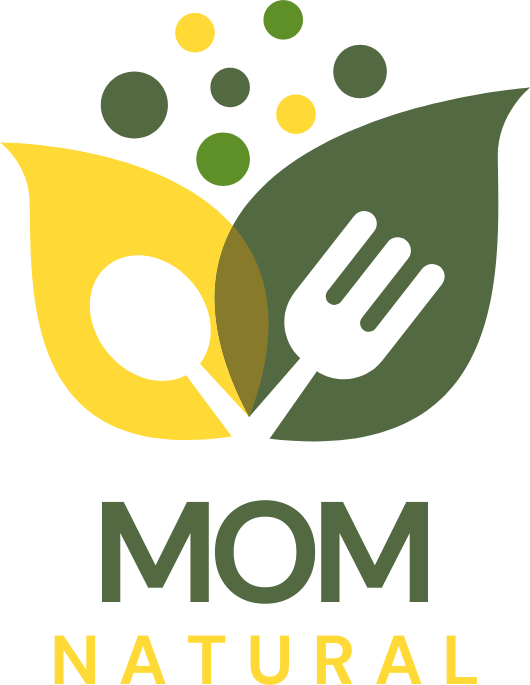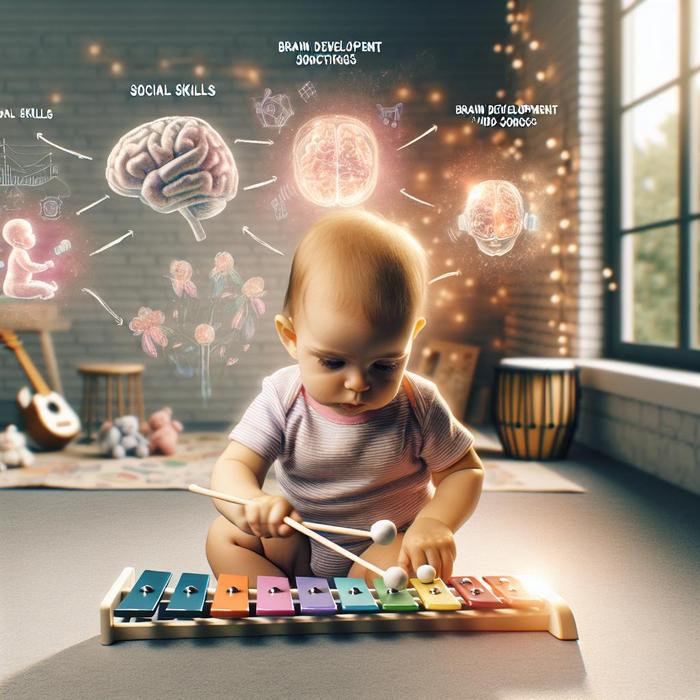Introducing Music into Your Baby’s Life: The Foundation of Social Skills Development
Ever wondered about the connection between music and your baby’s social skills? Music is a universal language that transcends age, culture, and geographical barriers. It’s more than just a form of entertainment- it plays a significant role in developing your little one’s social skills. Scientific studies, like one shared by the National Library of Medicine, have revealed that music activities can enhance your baby’s social interactions, communication, and understanding of shared goals. Let’s explore how you can use engaging play and music to stimulate your child’s social-emotional growth.
Music Activities: The Link Between Sound and Social Connections
Research from reputable sources such as ZeroToThree suggests that babies can react to music even while still in the womb. The lullabies you sing or the melodies you play can provide a sense of comfort and warmth, establishing a social bond between you and your baby.
As your child grows, so do their interactions with the world, and music becomes a powerful tool to encourage this. Simple music activities can cultivate their desire to engage with others and express emotions, laying a strong foundation for their social skills. Let’s delve into a few fun activities and songs that you can incorporate into your baby’s daily routine.
Fun Music Activities to Boost Baby’s Social Skills
- Sing-Along Sessions: Break the day’s routine with some casual sing-along sessions. The repetition of words can foster language development and comprehension. Choose songs with simple lyrics and lots of repetition. Encouraging your baby to mimic the sounds can initiate communication and dialogue.
- Music and Movement: Think beyond just listening. Combining music with movement activities such as clapping, bouncing, or dancing can be incredibly engaging for your baby. It not only boosts their motor skills but also encourages them to understand and respond to cues from their social environment.
- Story-Telling with Songs: Integrate story-telling sessions with music. Adding melodies to the narrative can make story time more engaging, fostering your baby’s concentration and listening skills.
Apart from these, there are numerous other ways to introduce music into your baby’s life. Remember, the objective is to create a stimulating environment that promotes social interaction and emotional expression. Check out Kindermusik With Sarah and Modulation Therapies for additional insights into the benefits of music for early childhood development.
Making the Most of Music and Playtime
When it comes to teaching your baby social skills through music activities, the key lies in being enthusiastic and interactive. Remember, this is not just about brain development but also about creating joyous moments that you and your baby will cherish. Whether it’s humming a lullaby, shaking a rattle, or tapping your feet to a catchy tune, every little interaction contributes to your baby’s social development.
Parenting is an enriching journey of love, care, and discovery. As you explore these music-based activities, you’ll realize the potential music has in influencing your baby’s emotional and social growth. Looking for more parenting advice? From batch cooking tips to guidance on choosing safe baby gear and handling toddler’s emotional swings, we have it all covered.
Music Classes for Babies: A Great Opportunity for Research-Based Learning
With the importance of music in child development becoming increasingly evident, many educational institutions are introducing specialized music classes for children. Organizations such as Gymboree, renowned for their child development programs, offer music classes starting from as young as 6 months. These classes aim to nurture your baby’s hat of pitches and rhythm while encouraging social skills development through group interaction.
Alternatively, you might create your own music for your baby. The key is to make the sessions fun, interactive, and engaging. No matter which approach you take, introducing your baby to a variety of music genres can prove beneficial. It’s versatile, from classical compositions to modern pop, all genres can contribute to various aspects of social skills development.
Music and Autism: An Effective Therapeutic Tool
Music isn’t just beneficial for typical children – it also offers several benefits for children with special needs. Experts from the National Institute on Deafness and Other Communication Disorders (NIDCD) indicate that music can serve as an important therapeutic tool in early intervention care for children with Autism Spectrum Disorders (ASD).
Elements such as rhythm and tonal variations can help create a structured environment for these children. This can greatly aid in instance of social interaction difficulties, which is common among individuals with ASD. It not only provides a safe and predictable medium for expression, but engaging in music activities can also boost self-confidence and reduce social anxiety. Parents or caregivers who are able to harness the power of music effectively can significantly improve the quality of life for their children with special needs.
Music Apps for Babies: Promoting Social Skills in the Digital Age
With technology becoming an integral part of our lives, it’s no surprise that there are several apps available today that cater to enhancing music appreciation in babies and toddlers. These apps not only make music more accessible but also provide a digital platform for social interaction. They playfully teach babies how to interpret and respond to musical sounds and cues – important tools for social communication. The interactive animations and colourful designs also help keep babies stimulated and engaged.
While such digital tools cannot replace real-world interaction, they can certainly complement it, adding another dimension to a baby’s sensory experience and social learning. As with all forms of technology, it’s valuable to remember the importance of moderation as digital screen time should be thoughtfully balanced with physical interaction and activities.
Benefits of Music in Children’s Understanding of Rhythm and Movement
Many educators believe the movements that children make in response to music, such as clapping or swaying, are not merely mimicking. Instead, these are conscious interpretations of rhythm and pitch, reflections of the valuable social-emotional learning taking place. Babies experiencing music and movement are actively crafting their own understanding and interaction with the world around them. Northern Illinois University’s Child Development Center offers an array of research resources on how music and movement can support children’s social development.
Time to give your baby that rhythm and introduce the magic of music into their lives! It’s about more than creating a fun environment – it’s about fostering social interaction, expression, and providing a strong foundation for emotional growth.
Remember: The Power of Music is in the Experience
The social benefits of music in your baby’s life reach far beyond understanding rhythm or recognising melodies. It’s the shared experiences the music initiates – the bond forged as you sway together to the rhythm, the anticipation instilled by waiting for a pause or drumroll. These daily encounters with music will not only unite you and your baby but also establish a strong base for their social-emotional skills.
When it comes to your baby and music, remember: it is less about mastering an instrument or perfecting a song; it’s about experiencing, creating, sharing, and above all, enjoying. Whether it’s as simple as tapping a rhythm on the kitchen table or rocking out to your favourite lullaby, each interaction is part of your baby’s social development journey.

